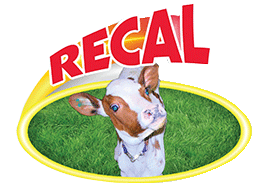Livestock Stress
Stress, What is stress? Stress occurs when animals are overwhelmed, depressed, exhausted, over worked, affected by environmental change such as extreme heat and cold, transportation, comingling, handling, weaning, maternity, disease, sickness, muddy lots, overcrowding, feeding for high production, and poor nutrition. These are all stress factors that livestock experience frequently. Stress affects many things, #1 most importantly is the immune system. And health is the #1 thing you want in your livestock. Without a good immune system your livestock will never perform to its genetic potential. Stress also affects blood flow, performance, feed intake, conception, semen quality, disease resistance, milk production and quality, death loss, cull rate, and profitability. No matter what type of livestock you have animal health is first and foremost. If that animal does not have a good immune system and healthy digestive tract it is not going to perform and be profitable. Body condition is the second most important thing. This can be done with proper nutrition. But stress of any kind can affect all of this.
I think we all know that B-vitamins help with stress. That is why we give sick and stressed animal's shots of B-vitamins. B-vitamins improve animal comfort by giving them needed energy and stimulates appetite and immune function. For those of you that don't know, B-vitamins are made from a specific strain of bacteria. Ruminate animals do have the capability of producing their own B-vitamins naturally in the rumen. But if the ruminate animal has an unhealthy rumen, or rumen damage due to acidosis or mycotoxins, or stressed, sick and off feed they will not produce the B-vitamins they need.
All B-vitamins help the body to convert feed (carbohydrates) into fuel (glucose) which is burned to produce energy. These B-vitamins, often referred to as B complex vitamins, also help the body metabolize fats and protein. B complex vitamins are necessary for healthy skin, hair, eyes, and liver. There are several different B-vitamins.
- Thiamine: Converts glucose into energy for the nervous system and enhances blood circulation.
- Riboflavin: Aids in the metabolism of fats and carbohydrates, and also works as an antioxidant.
- Niacin: Aids in the synthesis of glycerol, the oxidation of fatty acids and the synthesis of certain steroids and amino acids and helps lower cholesterol and thins the blood.
- Pantothenic acid: Is a requirement element of an important enzyme necessary for the conversion of all organic substances to energy.
- Biotin: Is a key element in the formation of keratin and epidermal cells necessary for the formation of hooves. In the rumen it is needed for the formation of propionate, one of the key VFAs.
- Folic acid: Aids in cell division, protein metabolism and the synthesis of red blood cells.
- Pyridoxine: Is converted into a compound that is a co-factor in the metabolism of proteins as well as the metabolism of carbohydrates and promotes fed blood cell formation.
- B12: Is another necessary component of energy metabolism as well as the synthesis of the all- important and often limiting amino acid, methionine and acts as an energy booster and prevents anemia.
As you can see, B vitamins are a very important part of animal nutrition. From getting more energy from carbohydrates, proteins, and fats to building red blood cells improving blood circulation. This is why B vitamins help so much on sick and stressed animals.
Direct-Fed Microbials and Stress Reduction
Putting good beneficial bacteria to work for your livestock. Utilization of feeds that maximize the efficiency of the rumen is very important. Direct-fed microbials (DFMs) are natural feed additives used in calves, beef & dairy cattle, whitetail deer, horses or any animal in a stressful situation. All animals experience stress. Feeding proper DFMs can increase the number of beneficial bacteria and enzymes in the rumen to establish a desired microbial balance. Yeast extract can benefit those microbes that digest fiber, protein, and starch by utilizing lactic acid. This increases rumen pH to favorable conditions for the enzymes and microbes to digest. There are already billions of bacteria and enzymes in the rumen. The idea behind DFMs are to put specific types, strains, and numbers of bacteria and enzymes into the rumen improve digestion and overall health. All probiotics or DFMs are not the same. There are hundreds of various strains and combinations.
RECAL Extra and RECAL Powder are direct-fed microbials (DFMs) that are fairly new to the market. RECAL PLUS and RECAL Powder are formulated to improve on overall health, digestion, performance, and reproduction. Our main goal at RECAL Microbials is animal health. RECAL PLUS is currently being researched by Dr. G.W. Snider of Goshen, Indiana. He is a very well-known dairy veterinarian across the country. With his research, we are finding that RECAL PLUS aids in improving immune systems, better digestion, increasing feed efficiency, improving reproduction, lowering somatic cell counts and reducing cull rates.
RECAL Microbials LLC
Jamie Troxel
330-601-2142
|





